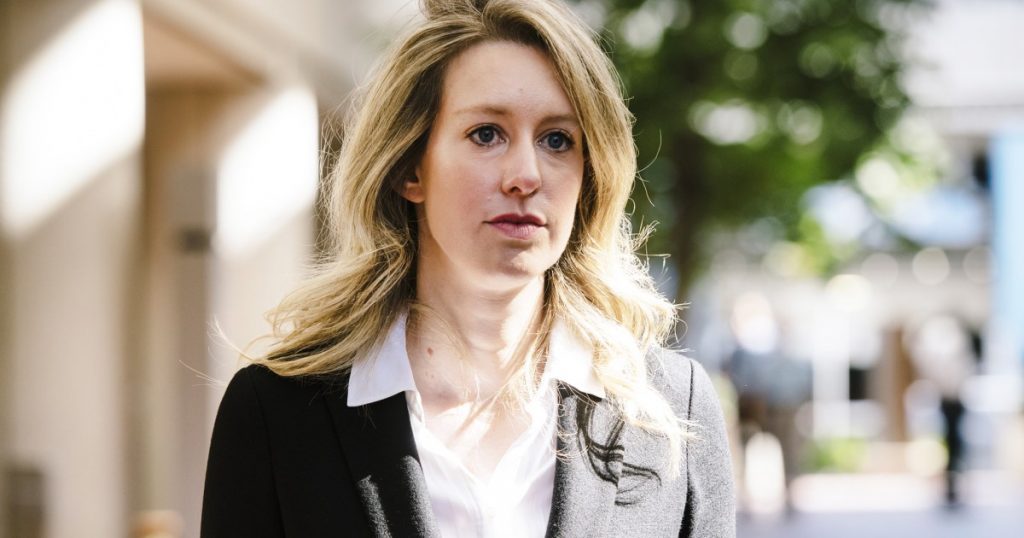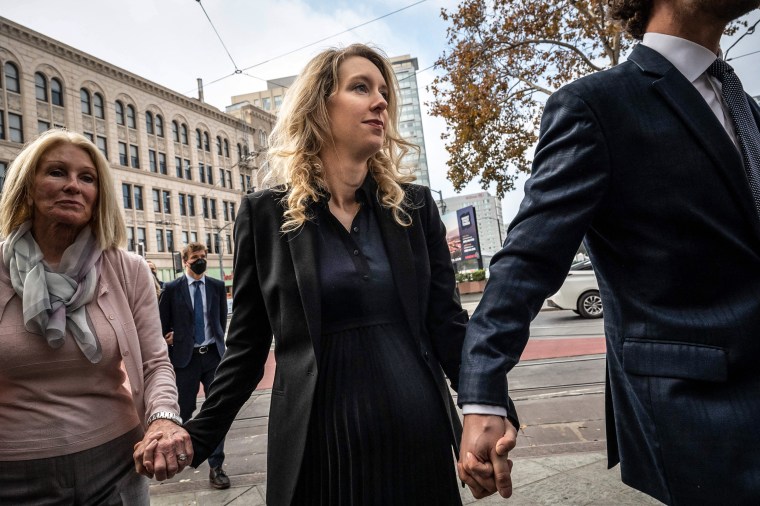
Elizabeth Holmes, the founder of disgraced biotech firm Theranos, was still in possession of a one-way ticket to Mexico shortly after she was convicted of fraud last January, prosecutors said Thursday.
Holmes was found guilty on four counts of lying to investors on Jan. 3, 2022. According to a Thursday court filing, on Jan. 23, 2022, the U.S. government became aware of the ticket for a flight to Mexico departing Jan. 26, 2022 without a scheduled return trip.
In the response filing, prosecutors characterize her itinerary as “an attempt to flee the country.”
“Only after the government raised this unauthorized flight with defense counsel was the trip canceled,” prosecutors said.
It is not clear when Holmes originally purchased the ticket. In response to a Jan. 23, 2022, query about the ticket from the case’s lead federal prosecutor, an attorney for Holmes characterized the situation as a misunderstanding, according to an exhibit also filed Thursday.
“In general, this was a reservation that was made before the verdict,” Lance Wade said in response to Assistant United States Attorney Jeffrey Schenk, according to the exhibit. “The hope was that the verdict would be different and Ms. Holmes would be able to make this trip to attend the wedding of close friends in Mexico. Given the verdict, she does not plan to take the trip — and therefore did not provide notice, seek permission, or request access to her passport (which the government has) for the trip. But she also had not yet cancelled the trip, amidst everything that has been going on.”
The prosecutors’ response filing came as part of the government’s opposition to Holmes’ motion for release from detention pending appeal of her sentencing; in November, a judge sentenced Holmes to more than 11 years in prison. U.S. District Court Judge Edward Davila ordered Holmes to surrender herself into custody by April 27. It has not yet been determined where she would serve her sentence, but Davila has recommended a minimum-security prison camp in Texas.

Holmes’ partner, William Evans, also bought a one-way ticket “and did not return until approximately six weeks later, returning from a different continent,” prosecutors said.
“The government anticipates (Holmes) will note in reply that she did not in fact leave the country as scheduled—but it is difficult to know with certainty what (Holmes) would have done had the government not intervened,” prosecutors said.
Prosecutors also allege Holmes maintains access to vast financial resources.
“(Holmes) has lived on an estate for over a year where, based upon the monthly cash flow statement (Holmes) provided to the U.S. Probation Office, monthly expenses exceed $13,000 per month,” they write.
They further note that a judge has found that Holmes “never fully appreciated that [s]he would be incarcerated” based on “ill-founded hopes that the Court would give [her] a probationary sentence.” Additionally, Holmes has not “demonstrated . . . in [her] words or manner, a genuine acceptance that [s]he stole a significant amount of money from [investors] by lying and falsifying documents,” the prosecutors say.
They thus vehemently object to any release.
“At the same time when her incentive to flee has never been higher, (Holmes) has requested the Court ease the restrictions on her travel, permitting her to travel outside of the Northern District of California and perhaps out of the state altogether ‘due to her significant other’s employment.’”
The U.S. has maintained bilateral extradition treaties with Mexico dating back to the 19th century — perhaps contrary to belief that crossing the southern border guarantees freedom. Since 2005, Mexico has deported between 150 and 200 fugitives to face charges in the U.S., according to the U.S. State Department.
In one prominent example, Wanda Lee Ann Podgurski, convicted of disability and insurance fraud in 2013, was apprehended in Mexico six months after an account in her name tweeted, “Catch me if you can.”
The U.S. Marshals service is the primary agency designated for tracking fugitives. In addition to maintaining an office in Mexico, the USMS works closely with law enforcement agencies along the borders of Mexico and Canada and with the U.S. Department of State’s Diplomatic Security Service.
An attorney for Holmes did not immediately respond to a request for comment.

 Latest Breaking News Online News Portal
Latest Breaking News Online News Portal




